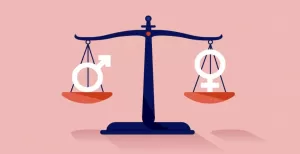Six months into the World War II, in March, 1940, George Orwell wrote a review of Hitler’s Mein Kampf for the New English Weekly. It was a short essay, all of 1200 words (or thereabouts) long, and its immediate context was the reprint, by the London-based publishers Hurst and Blackett, of their first unabridged English edition (1939) of the Fuehrer’s convoluted opus.
Orwell wryly notes how this was not so much a new edition as an attempt at damage control by the publishers: having launched the 1939 edition with the clear intention of ‘present(ing) Hitler in as kindly a light as possible’, Hurst and Blackett now felt obliged to tamp down their enthusiasm for the ranting bully somewhat. After all, Britain was now at war with Germany and the Luftwaffe would begin its strafe of London in a mere three months’ time.
So, England’s ‘property-owning classes’, originally elated at Hitler’s success with crushing the German labour movement, could no longer afford to pretend that ‘National Socialism was merely a version of Conservatism’. As a result, the publishers thought they needed to reissue Mein Kampf in a new jacket which announced that ‘all profits would be devoted to the Red Cross’. One can almost hear the scoffing chortle Orwell was trying to hold down as he wrote this.
Orwell was making several points here. One, that it was ludicrous to claim, as dyed-in-the-wool British conservatives seemed to be craftily doing (while publishers like Hurst and Blackett were conscientiously parroting such sentiments), that the Adolf Hitler who had written Mein Kampf in 1924-25 was not quite the ogre who later plunged the world into history’s most cataclysmic war in September, 1939. There had never been any real change in Hitler’s aims and opinions since his earliest days, Orwell asserts.
Indeed, Hitler’s great virtue, as Orwell sees it, is the absolute rigidity of his mind, so that his world-view, such as it was, ‘doesn’t develop’. “It is the fixed vision of a monomaniac and not likely to be much affected by the temporary manoeuvres of power politics”. Secondly, the Russo-German Nonaggression Pact of August 1939 – which Conservatives everywhere loved to make so much of so as to rationalise their own extraordinary about-turn vis-à-vis Hitler – had changed virtually nothing on the ground. It meant, at best, a slight tweaking of Hitler’s timetable.
Mein Kampf had laid out the plan to pulverise the Soviet Union first, ‘with the implied intention of smashing England afterwards’. It had turned out, however, that England had to be dealt with first, ‘because Russia was the more easily bribed of the two (countries)’. ‘But Russia’s turn will come when England is out of the picture – that, no doubt, is how Hitler sees it. Whether it will turn out that way is of course a different question’.
Orwell is being prescient here, considering that the Battle of Britain was still some months away and Operation Barbarossa was to kick off only in June the following year, after Hitler had had to call off the Luftwaffe’s English campaign in April-May 1941. And Orwell was dead right to believe that destroying the Soviet Union ranked far higher on Hitler’s list of must-do’s than bringing England to her knees. His assault on the USSR remains the most savage military campaign in history yet.
With these preliminaries attended to, Orwell now turns his attention to the more substantive question, which is, what accounts for the mystique of Hitler’s persona? Orwell is being brutally candid when he says this: “… I have reflected that, (ever since Hitler came to power), I would certainly kill him if I could get within reach of him, but that I could feel no personal animosity (towards him)”. (Emphasis added) Indeed, Orwell even says that Hitler possessed a certain raw appeal which made it impossible for Orwell himself to ‘dislike Hitler’; that one can feel this attraction ‘even in the clumsy writing of Mein Kampf, which is no doubt overwhelming when one hears his speeches’.
“One feels it again when one sees his photographs — …..(in particular the one) which shows Hitler in his early Brownshirt days. It is a pathetic, dog-like face, the face of a man suffering under intolerable wrongs. In a rather more manly way it reproduces the expression of innumerable pictures of Christ crucified, and there is little doubt that that is how Hitler sees himself. …. He is the martyr, the victim. Prometheus chained to the rock, the self-sacrificing hero who fights single-handed against impossible odds. If he were killing a mouse, he would know how to make it seem like a dragon. One feels, as with Napoleon, that he is fighting against destiny, that he can’t win, and yet that he somehow deserves to. The attraction of such a pose is of course enormous; half the films that one sees turn upon some such theme.” (Emphasis added)
“He is the martyr, the victim… Prometheus chained to the rock, the self-sacrificing hero fighting single-handed against impossible odds…fighting against destiny… he deserves to win.” Don’t these words ring a bell? Aren’t they the vital pieces that combine to create a credible picture of the modern-day messiah, the true underdog or outsider, resource-starved yet valiant, who is destined to save his country from utter ruin and deliver its citizens to the Promised Land?
Unlike the strongman – tyrants of the classical mould who dominated the latter half of the twentieth century, the Pinochets, the Marcoses, the Noriegas and the Videlas of the world, the despot who has managed to capture the imagination of the third millennium – a Donald Trump or a Narendra Modi or even a Jair Bolsonaro – gloats that he has arrived as a complete outsider to traditional power structures, as one to whom entrenched interest lobbies (the ‘Khan Market gangs’, as Narendra Modi’s epigones so evocatively describe them) will cede ground only with the greatest reluctance. It is for a reason that Trump locates himself – at any rate rhetorically – at the antipodes to Wall Street, and the same reason impels Narendra Modi to claim he was a humble chaiwallah with scarcely any worldly ambitions, far less resources, who has yet been ordained to restore Bharat to its ancient glory.
Orwell was being particularly acute when he added that telling line (see the paragraph I quoted above), which says: ‘If he (Hitler) were killing a mouse he would know how to make it look like a dragon’. This is an attribute both Modi and Trump possess in abundant measure. The enemy they slay day in and day out – whether it be a bilious neighbour, a feckless rival or a prickly epidemic – does sometimes come back to bite them, surely, but by then the narrative has shifted its focus to a new crusade.
And, in any case, Trump’s presidential inauguration must needs be the biggest, the swankiest in American history; and woe betide those graceless non-believers who dare suggest that Modi’s surgical strikes into Pakistan may have swatted more mosquitoes than rogue Pakistani operatives.
From here, Orwell goes on to posit an interesting linkage between human suffering and pain on the one hand and fealty to the Leader who inflicts that pain, on the other. Hitler, Orwell says,
“had figured out that human beings don’t only want comfort, safety, short working-hours, hygiene, birth-control and, in general, common sense; they also, at least intermittently, want struggle and self-sacrifice, not to mention drums, flags and loyalty-parades.
“However they may be as economic theories, Fascism and Nazism are psychologically far sounder than any hedonistic conception of life…. All three of the great dictators (Hitler, Mussolini and Stalin) have enhanced their power by imposing intolerable burdens on their peoples. Whereas Socialism, and even capitalism in a more grudging way, have said to people “I offer you a good time”, Hitler has said to them “I offer you struggle, danger and death”, and as a result a whole nation flings itself at his feet.”
Orwell suggests that because he had the ‘gift’ of a darkly joyless mind himself, Hitler felt it with exceptional strength that human beings can at times respond with great enthusiasm to calls for self-sacrifice and pain; indeed, that they will even thrill to such calls, forgetting all about their own well-being, if the messaging is artful enough and manages to pitch the common citizen-David against the hitherto all-powerful ‘System’-Goliath dramatically.
A time may come later when citizens will get sick of it and change their minds: when slaughter and starvation become front and centre of their existence, ordinary humans will likely begin to interrogate the messiah. But all that lies in an indeterminate future. Meanwhile, Hitler’s call, ‘Better an end with horror than a horror without end’, will mesmerise many, many hearts and minds.
We Indians do not need to seek far and wide for a validation of this proposition. A look back at November, 2016 – when India was waylaid by the ballyhoo around Narendra Modi’s vaunted Demonetisation Project – will suffice. The mayhem that manoeuvre brought in its wake was staggering. Many lives were lost, countless more livelihoods disappeared in a trice, and the Indian economy was arguably set back by several years: indeed, it hasn’t got back on its feet ever since.
And yet, miraculously, millions of ordinary Indians were induced into believing that the horrendous price they had been called upon to pay was well worth it. For the government’s cleverly constructed message told them that they needed to pay that price so that their country could grow stronger.
The gambit succeeded brilliantly. The ruling regime won the Uttar Pradesh state elections – which followed soon after demonetisation’s carnage – very, very handsomely, for the millions who had been pauperised by that cynical stratagem now thronged the voting booths to bless the same regime. Orwell’s 1940 essay revolves around the great dictators of his time, but it anticipates with uncanny thoroughness the games that twenty-first century autocrats play as well.
(Anjan Basu is a Bengaluru based journalist. Article courtesy: The Wire.)




